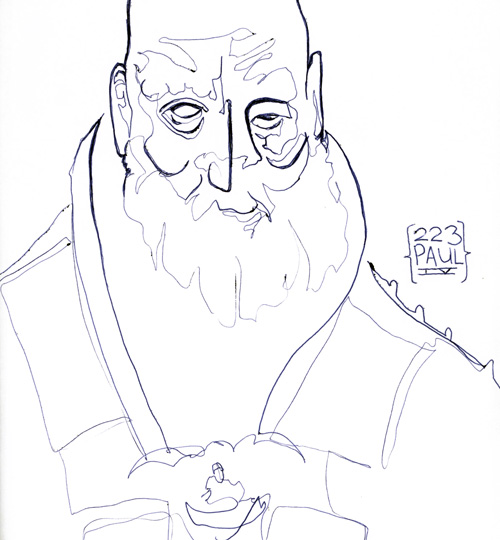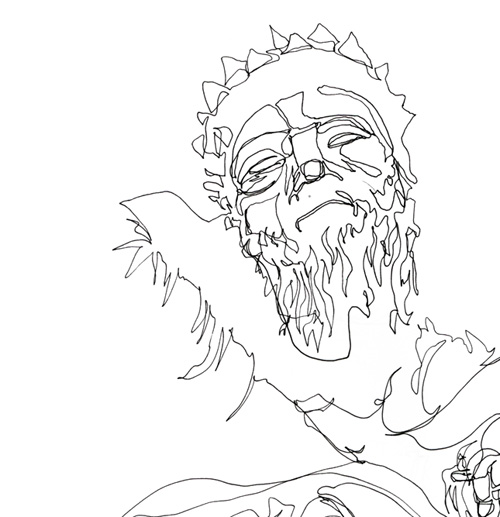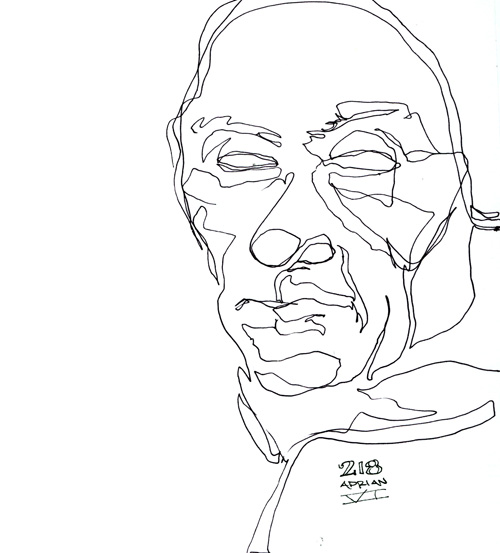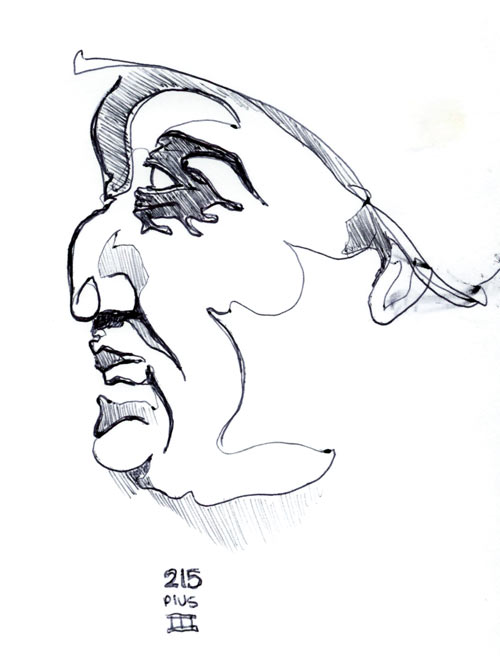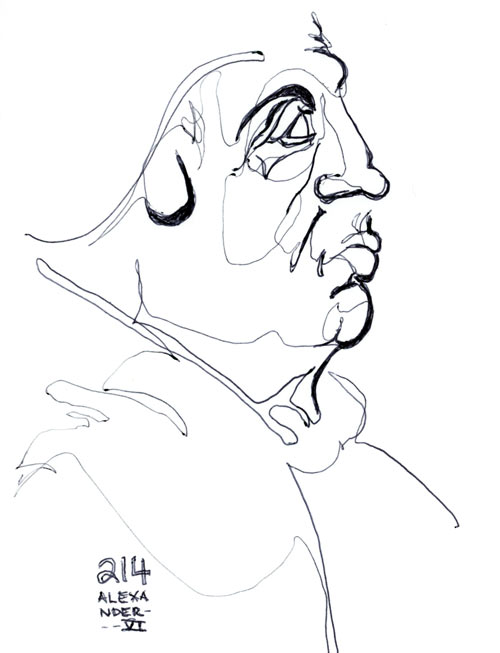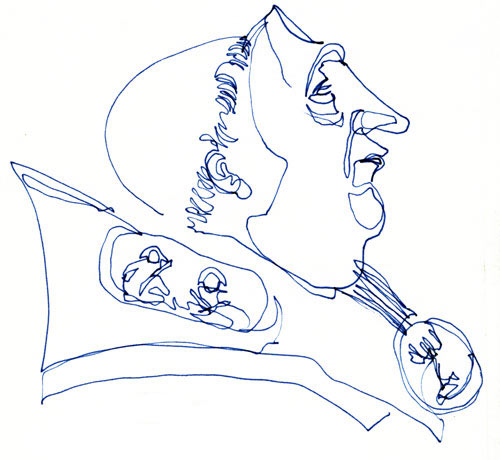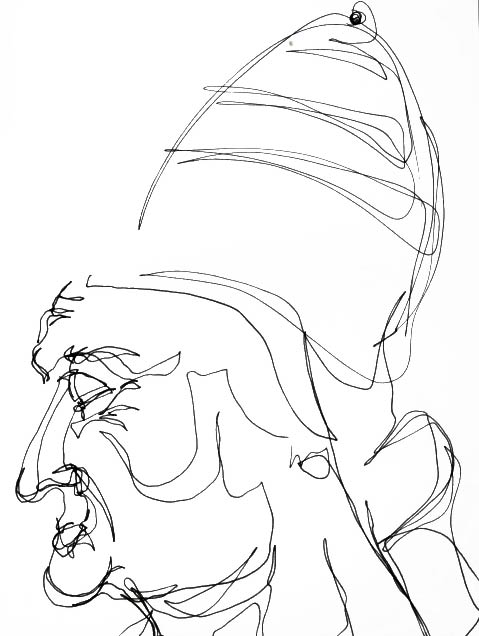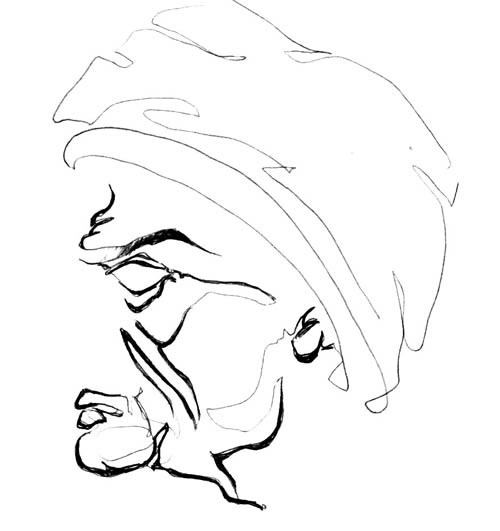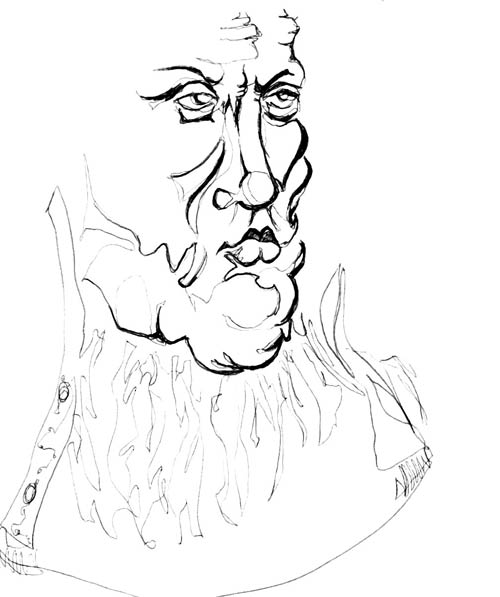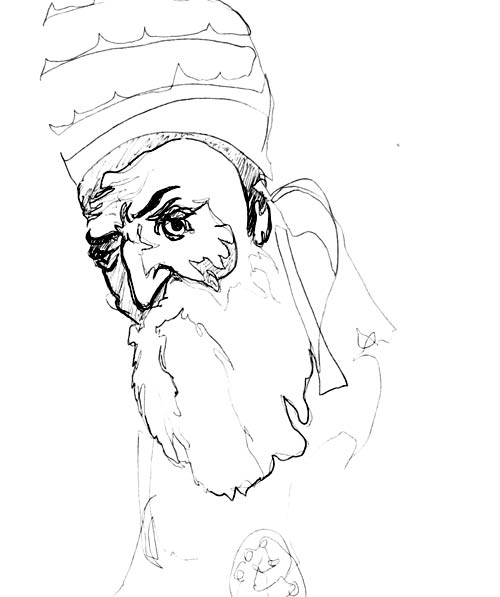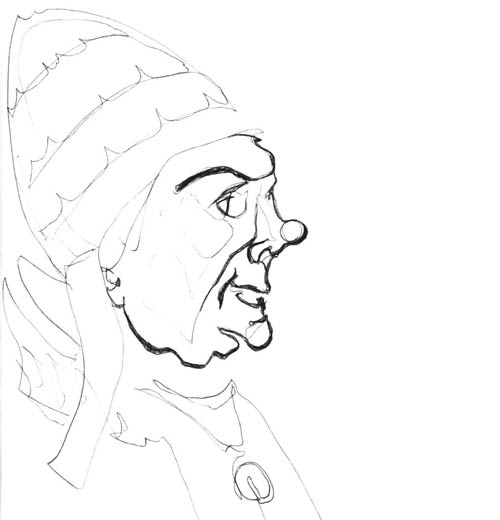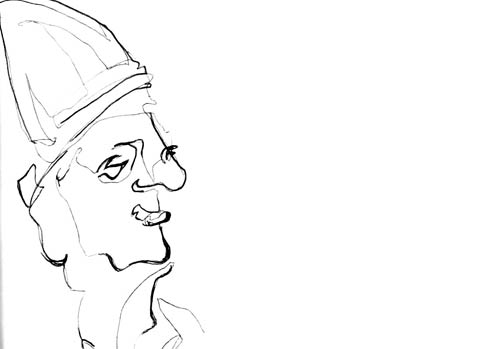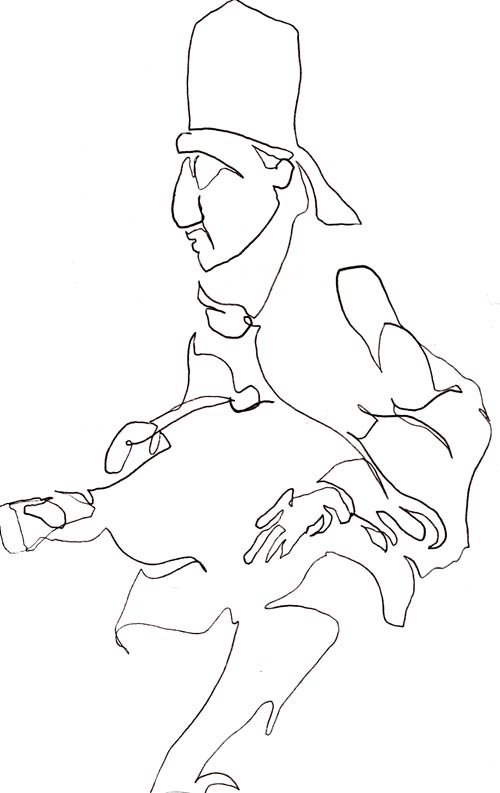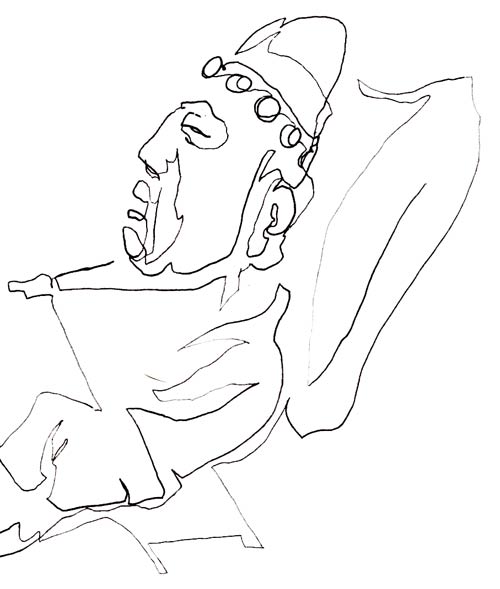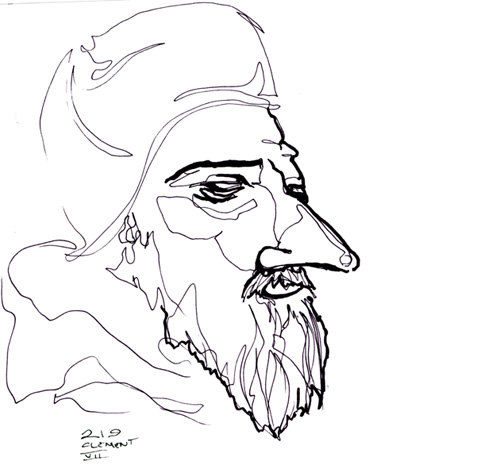
Clement, who ruled from 1523 to 1534, was an Italian of the Medici family. He marks an important point in our little history - from Clement VII all the way until Pope John Paul II, every elected pope, for the next four hundred years, will be Italian. Things did not go well for Clement during his tenure.
Before his election, Clement VII was a high-ranking church official, and saw the Protestant Schism tear apart the continent. Clement didn't really try to heal this division - it was too far gone at this point - but ended up being responsible for the English Reformation. Henry VIII wanted papal approval to divorce his wife, Catherine, and marry his alleged lover Anne Boleyn. Clement stalled, asked for investigations, sent spies to verify the situation, but ultimately Henry lost patience, and (with Parliament's help) split from Rome and founded the Church of England.
Clement's real trouble came before that. He had constant internal troubles with the bickering Italian
families - the Medici, the
Orsini, and most importantly
Pompeo Colonna. This ultimately led to the Sack of Rome, which marks the end of the medieval period of that city. While Clement was barely holding on to power in the city,
Pompeo Colonna took charge of thirty-five thousand Imperial mercenaries nearby (they happened to be in the neighborhood, just finishing up a war with France in Italy). The Empire didn't have the cash to pay the mercenaries, so
Pompeo stepped in and suggested that they attack Rome instead. Clement was taken prisoner, and the hordes trashed this city - with a mix of Protestant indignation and pecuniary zeal.
We do have one good thing to count on Clement's side - he commissioned
Michelangelo to paint The Divine Judgement*, on a wall of the Sistine Chapel. He died shortly after, and never even saw the first sketches.


